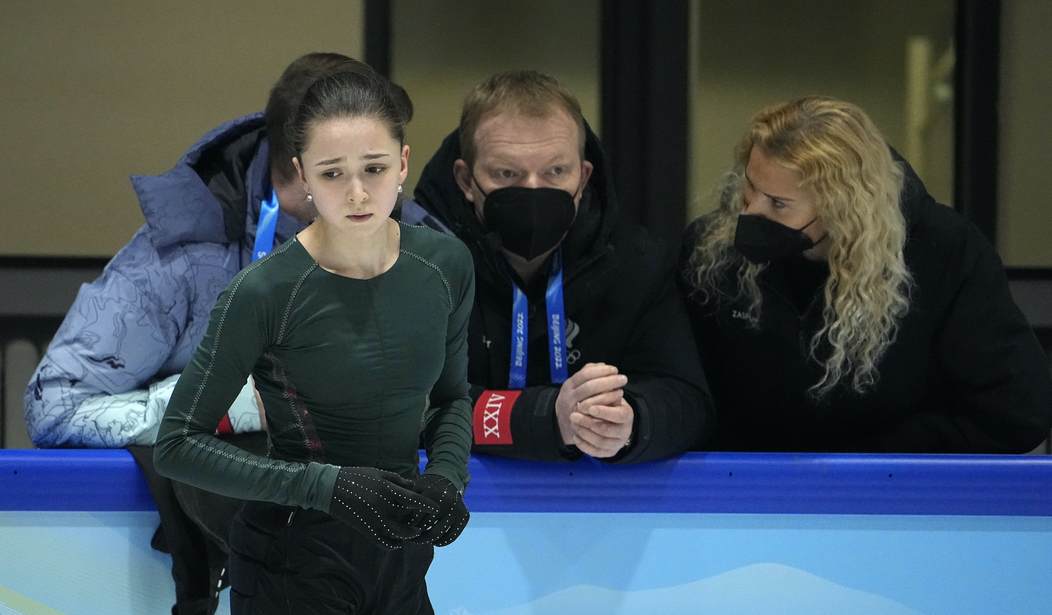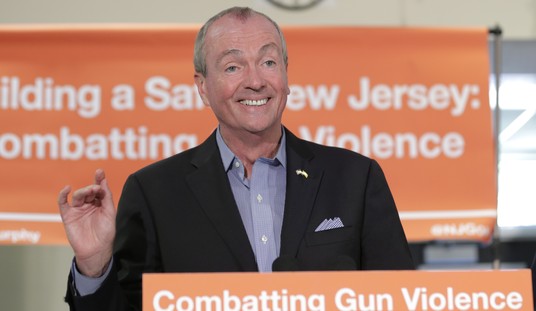The lede from the AP’s story about what happened last night is unbeatable: “The gold medalist said she felt empty. The silver medalist pledged never to skate again. The favorite left in tears without saying a word.”
Congratulations to Russia, which took first, second, and fourth places in women’s figure-skating while turning the competition into a sh*tshow so repellent that sportswriters were using terms like “child abuse” afterward to describe what went down.
I wrote a few days ago about Kamila Valieva, the 15-year-old Russian superstar who was heavily favored to take gold in Beijing. News broke this week that Valieva had tested positive in December for a banned substance, a heart medication capable of enhancing endurance. But she wasn’t banned from the Olympics: Because of her tender age, the Court of Arbitration of Sport deemed her a “protected person” who’d be allowed to compete while an investigation into her drug test proceeded. That threw the competition into chaos, with the International Olympic Committee declaring that no medal ceremony would be held if Valieva finished in the top three due to the uncertainty over her status.
Valieva claimed that she must have mistakenly taken one of her grandfather’s heart medications. But that excuse was on thin ice (no pun intended) after news emerged that she had actually tested positive for *three* heart medications. Two of those were legal but experts are suspicious, with the head of the U.S. Anti-Doping Agency alleging that the cocktail of drugs “seem to be aimed at increasing endurance, reducing fatigue and promoting greater efficiency in using oxygen.”
A cloud now hung over the figure-skating final. NBC’s announcers, Johnny Weir and Tara Lipinski, were so disgusted by the decision to let Valieva compete that they refused to provide commentary during her first performance in the individual event a few nights ago.
Fast-forward to last night’s free-skate final, the one that would decide who took gold. Russia’s team was loaded. They had former world champion Anna Shcherbakova as well as Alexandra Trusova, a specialist in quadruple jumps that few other skaters can pull off. But all eyes were on the expected winner, Valieva. Would she overcome the tumult of her failed drug test to claim gold or would she choke under the unimaginable pressure and hostile scrutiny, as any 15-year-old might?
She choked. And all hell broke loose.
Valieva fell several times during her routine and crashed into fourth place. “Thank God!” exclaimed Weir, pleased that a doper wouldn’t walk away with a medal. The reception Valieva got from her coach after finishing her routine — the same coach who may well be responsible for having drugged her — was so icy and lacking compassion that even the head of the Olympic Committee pronounced himself appalled:
“When I afterwards saw how she was received by her closest entourage, with such, what appeared to be a tremendous coldness, it was chilling to see this,” Bach said at a news conference on Friday. “Rather than giving her comfort, rather than to try to help her, you could feel this chilling atmosphere, this distance.”…
The IOC president did not name Valieva’s coach, Eteri Tutberidze, who was seen on camera telling a visibly upset Valieva, “Why did you let it go? Why did you stop fighting?”
Valieva collapsed into tears in front of hundreds of millions of viewers after leaving the ice. But so did Trusova, who had skated the performance of her life, making history by landing no fewer than five quadruple jumps. That was good enough for silver — but not for gold. Shcherbakova took first due to higher artistic scores, which left Trusova inconsolable afterward.
“I hate this sport,” she shouted at the side of the rink. “I won’t go onto the ice again.”…
Trusova said she was happy with the skate but not with the result, an apparent jab at the judging that gave Shcherbakova enough extra points for artistry to keep her ahead…
Trusova later said her comments about not skating again had been “emotional”, the result of missing her family and her dogs, but didn’t commit to compete at next month’s world championships.
As for Shcherbakova, she was left sitting by herself after winning gold at the Olympics, clutching a teddy bear and looking glum. “On the one hand I feel happy, on the other I feel this emptiness inside,” she told reporters afterward, which is one of the more Russian things you’ll ever hear someone say.
Here’s footage via Axios, which you have to see to believe. That’s Valieva at the start of the clip; Trusova is the one with the red hair. Shcherbakova makes a cameo at around 2:20 as the loneliest girl in the world:
Still can't believe this pic.twitter.com/MWUXHs6jfm
— Kendall Baker (@kendallbaker) February 18, 2022
Big night at the Genocide Games. Great sport, great people, top to bottom.
Oh, just to round things off, the World Anti-Doping Agency has now accused the Court of Arbitration of Sport of having essentially rewritten the rules to let Valieva compete, further tainting the process. “This re-writing of the Code, which would apparently allow ‘protected persons’ to continue competing after testing positive for non-specified substances without any clarification of the circumstances, risks undermining the integrity of sporting competition and the confidence of athletes that they are competing on a level playing field,” the agency said in a statement. I’m as shocked as you are. Corruption? At the Olympics?
Watch NBC’s lowlight reel of the skating finals in the first clip below, followed by Weir and Lipinski reacting to their sport going up in flames.








Join the conversation as a VIP Member